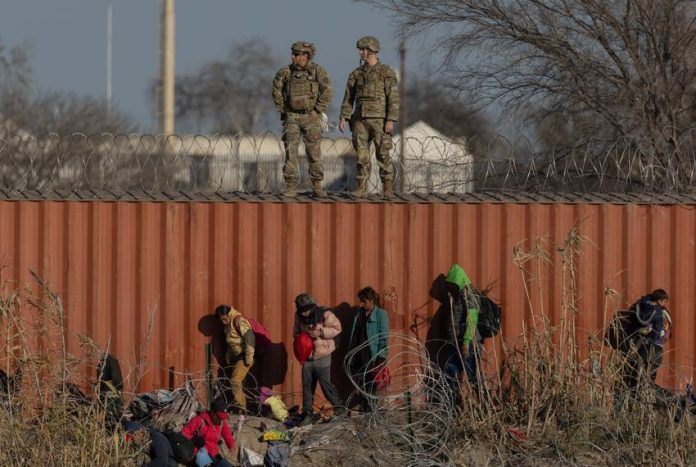A federal judge blocked on Thursday a new Texas law giving police broad powers to arrest migrants suspected of entering the US illegally.
US District Judge David Ezra’s preliminary injunction halting the law, which was set to take effect March 5, came as President Joe Biden and his likely Republican rival in November, Donald Trump, visited the southern Texas border to discuss immigration.
The ruling condemned Texas’ efforts to enforce immigration law on several fronts, brushing aside Republican claims of an ongoing “invasion” at the southern border due to a record high number of illegal crossings. Ezra also stressed that the law violates the Supremacy Clause of the Constitution, conflicts with federal immigration law and could interfere with USA foreign relations and treaty obligations.
Allowing Texas to “permanently supersede federal directives” due to a so-called invasion would “amount to nullification of federal law and authority – a notion that is antithetical to the Constitution and has been unequivocally rejected by federal courts since the Civil War,” the judge wrote.
Opponents call the Texas measure the state’s most dramatic attempt to control immigration since the 2010 Arizona law, which opponents called a “show me your papers” bill. The US Supreme Court partially struck down the Arizona law, but some Texas Republicans want the ruling reviewed.
In a statement, Governor of Texas Greg Abbott blamed Biden for the influx of migrants and said “we will not back down in the fight to protect our state – and our nation”. He wrote, noting that he believes the case will ultimately end up before the Supreme Court:
“Texas has the right to defend itself because of President Biden’s ongoing failure to fulfill his duty to protect our state from the invasion at our southern border.”
The civil rights groups that filed the lawsuit against the state argued that the law, if passed, could lead to civil rights violations and racial profiling. They issued a joint statement noting the decision. Jennifer Babaie, director of advocacy and legal services with Las Americas Immigrant Advocacy Center, said:
“With today’s decision, the court sent a clear message to Texas: S.B. 4 is unconstitutional and criminalising Black, Brown, Indigenous, and immigrant communities will not be tolerated.”
Under the rejected law, state law enforcement officers could arrest people suspected of entering the country illegally. Once arrested, they could accept a Texas judge’s order to leave the country or receive a misdemeanour charge for entering the US illegally. Migrants who do not leave the country after being ordered to leave can be arrested again and charged with a more serious offence.
Texas has been arresting migrants for years under a more limited programme based on criminal trespassing arrests.
Republicans backing the law said it would not target immigrants already living in the US because the illegal entry charge has a two-year statute of limitations and would only apply at the state’s border with Mexico.
Other Republican governors expressed support for Abbott, who said the federal government is not doing enough to enforce immigration laws.
Earlier, Texas has installed a floating barrier on the Rio Grande, put razor wire along the US-Mexico border and barred Border Patrol agents from accessing a riverside park in Eagle Pass that they previously used to process migrants.
